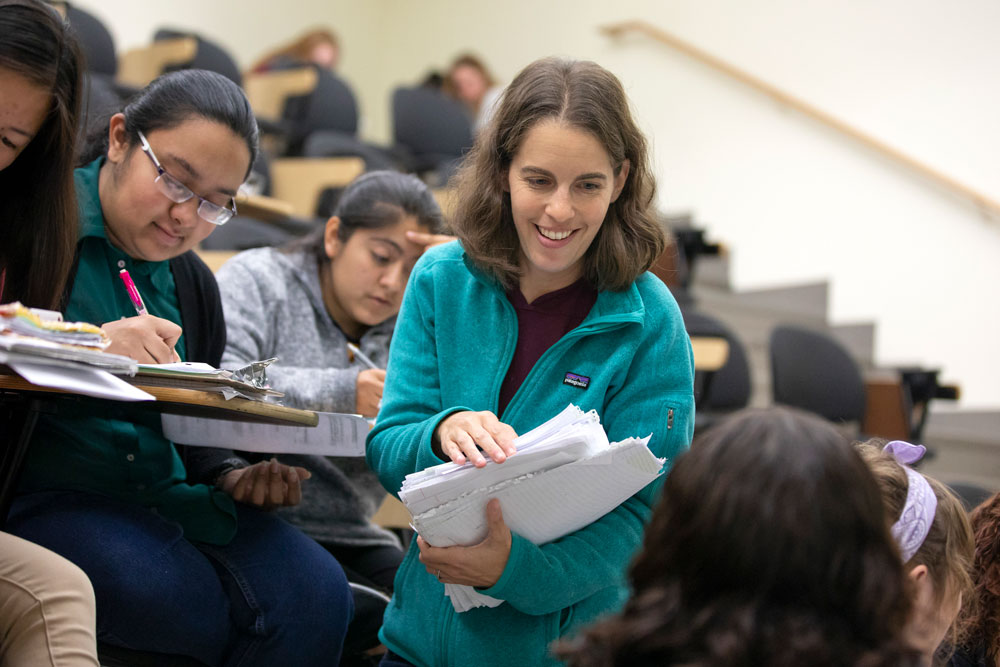The three-year grant will involve Puget Sound science students and be completed in collaboration with researchers from University of California, Berkeley
The National Science Foundation (NSF) has awarded University of Puget Sound professor Rachel Pepper a $363,570 grant for a research project on the feeding habits of microscopic organisms that help keep water clean.
The three-year project will use 3D measuring technology to better predict the feeding current of microscopic sessile suspension feeders, known as MSSFs. The single-celled organisms are critical to aquatic ecosystems because they perform the vital task of removing harmful bacteria and contaminants.
“Understanding the feeding current of MSSFs is one piece of the bigger puzzle of understanding how bodies of water stay clean and in balance,” says Pepper. “Knowing the pieces of this puzzle can help us to understand how resilient specific bodies of water are to changes, and how we can help them if something goes wrong.
“In the long term, we may be able to make suggestions to improve the efficiency of waste water treatment plants, or to improve cleanup after sewage leaks or oil spills,” she says.
An associate professor of physics and the William D. and Flora McCormick Chair in Biophysics, Pepper will lead a team of Puget Sound students in the research. The grant will support seven students across three summers and an additional student research assistant during the academic year throughout the three-year project.
Pepper plans to involve both biology and physics majors and for most measurements to be made by students as part of summer research projects.
“Students will receive training on cutting-edge technology to make 3D water flow measurements in the lab, and also to make 2D measurements in local bodies of water around Tacoma,” says Pepper.
Pepper is collaborating with Laura Waller, a professor at University of California, Berkeley. Waller, who was granted an additional $261,301 for the project, will host Pepper and her Puget Sound students intermittently throughout the three years to conduct research at UC Berkeley’s Computational Imaging Lab.
“The collaboration is exciting for a couple reasons,” says Pepper. “From the scientific perspective, it allows us to use cutting-edge technology as it is being developed in order to make the best three-dimensional flow measurements possible.
“From an educational perspective, working with professors, postdoctoral scholars, graduate students, and undergraduates at Berkeley is an amazing opportunity for Puget Sound students. They can participate in research at a large, R1 institution, and see if they want that to be part of their future.”
Pepper also has plans to leverage the grant beyond the three-year research project.
“I will also be developing an instructional lab which teaches students how to do digital holography, and this lab will continue to impact students in the future, even after the grant has ended.”
Funding for the grant comes from NSF’s Physiological Mechanisms and Biomechanics Program, which supports research on the physiological and structural features that contribute to life processes in plants, animals, microbes, and other organisms.



